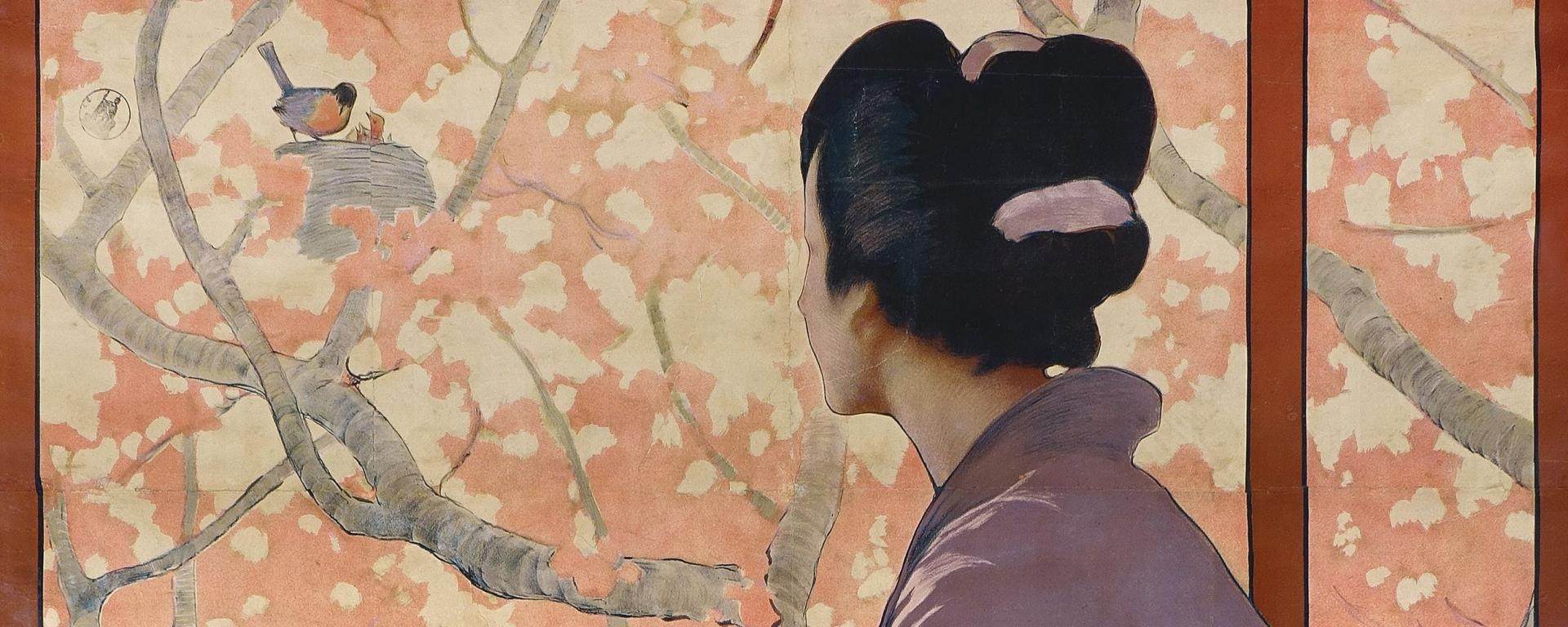Madama Butterfly
Mo | Tu | We | Th | Fr | Sa | Su |
After the successes of Manon Lescaut, La bohème and Tosca, the time has come for Puccini to conquer the temple of Italian opera as well. The subject of Madama Butterfly - an opera which debuted with an initial failure at the Teatro alla Scala on February 17, 1904 - he had chosen himself after having witnessed a similar drama by David Belasco in London, based on a short story by John Luther Long. The story of the young geisha seduced and abandoned by an American naval officer immediately struck Puccini's imagination. With the librettists Illica and Giacosa, Puccini decided to focus the work on the figure of Cio-Cio-San, creating a real monodrama that follows her psychological evolutions from the initial and disarming naivety to the tragic and heroic final resignation. Madama Butterfly is an individual drama but it is also an emblem of opposed worlds and cultures: on the one hand the docile but at the same time resolute geisha, who will pay the price of her life for the mistake of falling in love with a man who is foreign to her tradition of belonging, and on the other hand the Yankee Pinkerton, the cynical adventurer unable to feel real emotions and devoted solely to the satisfaction of his passions. Although opposed in the drama, East and West are perfectly combined in the music that is very rich in heterogeneous contaminations: oriental sounds skillfully recreated with the adoption of traditional Japanese melodies, pentaphonic and hexagonal scales, very refined timbral combinations but also compositional elements of the Western musical tradition (such as the fugato or the Leitmotiv, for example, or the direct quotation of the American anthem).
New staging
Synopsis
Act 1
In 1904, a U.S. naval officer named Pinkerton rents a house on a hill in Nagasaki, Japan, for himself and his soon-to-be wife, "Butterfly". Her real name is Cio-Cio-San (from the Japanese word for "butterfly" (蝶々, chōchō, pronounced [tɕoꜜːtɕoː]); -sanis a plain honorific). She is a 15-year-old Japanese girl whom he is marrying for convenience, and he intends to leave her once he finds a proper American wife, since Japanese divorce laws are very lenient. The wedding is to take place at the house. Butterfly had been so excited to marry an American that she had earlier secretly converted to Christianity. After the wedding ceremony, her uninvited uncle, a bonze, who has found out about her conversion, comes to the house, curses her and orders all the guests to leave, which they do while renouncing her. Pinkerton and Butterfly sing a love duet and prepare to spend their first night together.
Act 2
Pinkerton left shortly after the wedding, and three years later, Butterfly is still waiting for him to return. Her maid Suzuki keeps trying to convince her that he is not coming back, but Butterfly does not believe her. Goro, the marriage broker who arranged her marriage, keeps trying to marry her off again, but she does not listen to him either. The American consul, Sharpless, comes to the house with a letter which he has received from Pinkerton which asks him to break some news to Butterfly: that Pinkerton is coming back to Japan, but Sharpless cannot bring himself to finish it because Butterfly becomes very excited to hear that Pinkerton is coming back. Sharpless asks Butterfly what she would do if Pinkerton were not to return. She then reveals that she gave birth to Pinkerton's son after he had left and asks Sharpless to tell him.
From the hill house, Butterfly sees Pinkerton's ship arriving in the harbour. She and Suzuki prepare for his arrival, and then they wait. Suzuki and the child fall asleep, but Butterfly stays up all night waiting for him to arrive.
Act 3
Suzuki wakes up in the morning and Butterfly finally falls asleep. Sharpless and Pinkerton arrive at the house, along with Pinkerton's new American wife, Kate. They have come because Kate has agreed to raise the child. But, as Pinkerton sees how Butterfly has decorated the house for his return, he realizes he has made a huge mistake. He admits that he is a coward and cannot face her, leaving Suzuki, Sharpless, and Kate to break the news to Butterfly. Agreeing to give up her child if Pinkerton comes himself to see her, she then prays to statues of her ancestral gods, says goodbye to her son, and blindfolds him. She places a small American flag in his hands and goes behind a screen, stabbing herself with her father's seppuku knife. Pinkerton rushes in, but he is too late, and Butterfly dies.
Program and cast
RUNNING TIME
Approximately: 2 hours and 45 minutes (intermission included)
ARTISTS
Conductor: Daniele Gatti
Director: Lorenzo Mariani
Scenes: Alessandro Camera
Costumes: Silvia Aymonino
Lights: Marco Filibeck
Maggio Musicale Fiorentino Orchestra and Chorus
Chorus master: Lorenzo Fratini
Cio-Cio-San: Carolina López Moreno
F. B. Pinkerton: Piero Pretti/Vincenzo Costanzo (11/2)
Suzuki: Marvic Monreal
Sharpless: Nicola Alaimo
Lo zio Bonzo: Bozhidar Bozhkilov
Il principe Yamadori: Min Kim
Teatro del Maggio - Florence State Opera Italy
Teatro del Maggio is in the centre, close to the old city walls, next to the historic Stazione Leopolda. The garden that welcomes visitors is Piazzale Vittorio Gui, named after the founder of the Stabile Orchestrale Fiorentina and the Maggio Musicale Fiorentino.
By train
Santa Maria Novella is Florence's main train station.
From there you can reach the theatre with a short walk (about 10-15 minutes) or by taking the tram (a stop) or a taxi.
By car
The Opera di Firenze is just outside the ZTL area.
It is possible to park near the Parco delle Cascine or for a fee in the Porta al Prato car park (Via Elio Gabbuggiani, 7) and in the Piazza Vittorio Veneto car park.
By bus
Lines C1, C2 and D (Leopolda stop);
Lines 17 and 23A-B (stop Via delle Carra);
Lines 17B-C, 22, 23N, 23 and 57 (Pierluigi da Palestrina stop);
Lines 29, 29B, 29BA, 29BC, 29D, 30A, 30B, 30AC, 35 and 35° (stop Leopolda - Porta al Prato; Capolinea).
By tram
Line T1 (stop Porta al Prato - Parco della musica).

 EN
EN DE
DE IT
IT FR
FR ES
ES RU
RU JP
JP RO
RO
 Seating plan
Seating plan 
